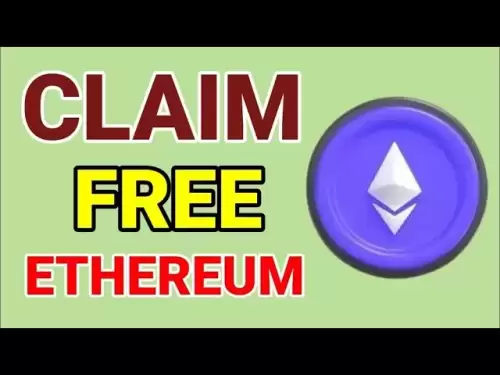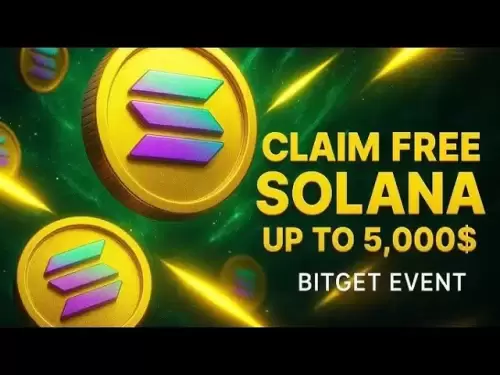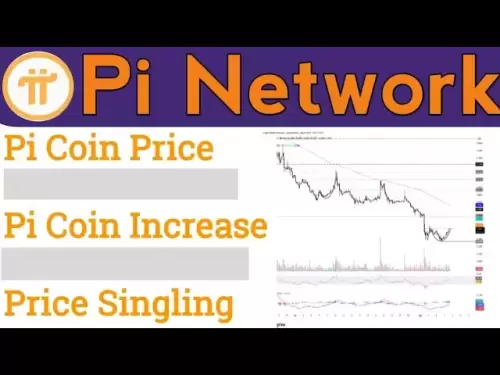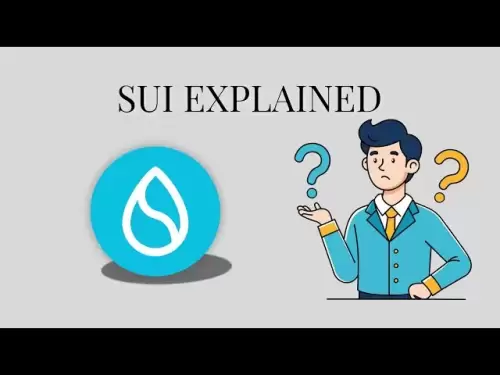-
 Bitcoin
Bitcoin $116900
0.00% -
 Ethereum
Ethereum $4280
5.48% -
 XRP
XRP $3.265
-1.45% -
 Tether USDt
Tether USDt $1.000
-0.01% -
 BNB
BNB $807.0
1.41% -
 Solana
Solana $183.1
2.93% -
 USDC
USDC $0.9999
0.00% -
 Dogecoin
Dogecoin $0.2440
6.50% -
 TRON
TRON $0.3357
-0.88% -
 Cardano
Cardano $0.8178
2.63% -
 Hyperliquid
Hyperliquid $44.13
7.45% -
 Chainlink
Chainlink $21.39
9.09% -
 Stellar
Stellar $0.4524
-0.84% -
 Sui
Sui $3.957
2.13% -
 Bitcoin Cash
Bitcoin Cash $572.7
-2.54% -
 Hedera
Hedera $0.2671
1.54% -
 Avalanche
Avalanche $24.77
4.17% -
 Ethena USDe
Ethena USDe $1.001
0.02% -
 Litecoin
Litecoin $122.3
-1.94% -
 Toncoin
Toncoin $3.432
2.26% -
 UNUS SED LEO
UNUS SED LEO $9.007
0.49% -
 Shiba Inu
Shiba Inu $0.00001396
5.26% -
 Uniswap
Uniswap $11.09
1.64% -
 Polkadot
Polkadot $4.155
4.57% -
 Dai
Dai $1.000
0.00% -
 Pepe
Pepe $0.00001253
5.11% -
 Cronos
Cronos $0.1588
2.67% -
 Bitget Token
Bitget Token $4.512
0.05% -
 Monero
Monero $275.0
0.64% -
 Ethena
Ethena $0.7527
15.10%
What is the contract address of Maker (MKR)? How to avoid buying fake coins?
The contract address of Maker (MKR) is 0x9f8F72aA9304c8B593d555F12eF6589cC3A579A2; verify it on Etherscan to avoid fake coins.
May 06, 2025 at 05:49 pm
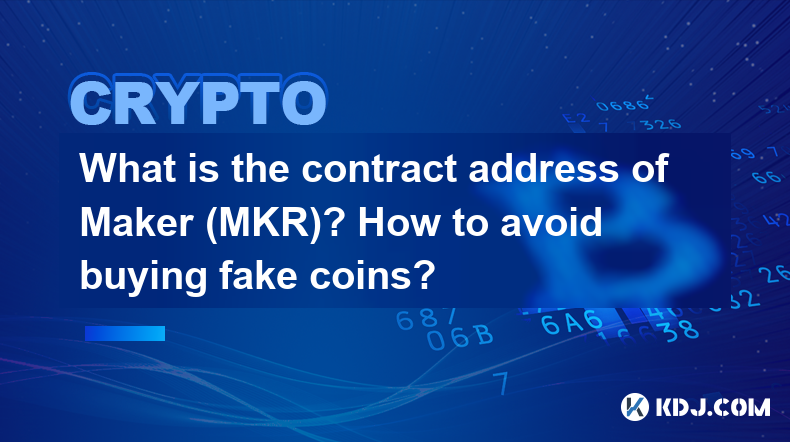
What is the Contract Address of Maker (MKR)? How to Avoid Buying Fake Coins?
Maker (MKR) is a crucial token in the decentralized finance (DeFi) ecosystem, primarily used to govern the MakerDAO and the DAI stablecoin system. Understanding the contract address of MKR is essential for interacting with the token on various blockchain platforms. Additionally, knowing how to avoid buying fake coins is vital for safeguarding your investments in the cryptocurrency market. This article will delve into both topics in detail.
Understanding the Contract Address of Maker (MKR)
The contract address of a cryptocurrency like Maker (MKR) is a unique identifier on the blockchain where the token's smart contract resides. This address is used to interact with the token, whether it's for transferring, staking, or other operations. For Maker (MKR), the contract address on the Ethereum blockchain is:
0x9f8F72aA9304c8B593d555F12eF6589cC3A579A2
This address is crucial for ensuring that you are interacting with the genuine MKR token. When you use this address, you can be confident that you are dealing with the official Maker token and not a counterfeit version.
Verifying the Contract Address
To verify the contract address of Maker (MKR), you can use blockchain explorers like Etherscan. Here's how you can do it:
- Visit Etherscan: Go to the Etherscan website at www.etherscan.io.
- Search for MKR: In the search bar, type "Maker" or the contract address 0x9f8F72aA9304c8B593d555F12eF6589cC3A579A2.
- Check Details: Once you find the token, you can review its details, including the contract address, total supply, and transaction history. Ensure that the contract address matches the one provided above.
By verifying the contract address through a reputable blockchain explorer, you can confirm that you are dealing with the authentic Maker (MKR) token.
How to Avoid Buying Fake Coins
The cryptocurrency market is rife with scams and fake tokens, making it essential to take precautions to avoid falling victim to these schemes. Here are some strategies to help you avoid buying fake coins:
Research the Token Thoroughly
Before investing in any cryptocurrency, it's crucial to conduct thorough research. This includes understanding the token's purpose, the team behind it, and its market performance. Here are some steps to follow:
- Read the Whitepaper: The whitepaper provides detailed information about the token's technology, goals, and roadmap. Ensure that the whitepaper is well-written and professionally presented.
- Check the Team: Look into the backgrounds of the team members. Verify their credentials and check if they have a history of successful projects.
- Review Market Performance: Analyze the token's price history and trading volume. Be wary of tokens with sudden, unexplained price spikes.
Use Reputable Exchanges
Trading on reputable exchanges is one of the best ways to avoid fake coins. Reputable exchanges conduct due diligence on the tokens they list, reducing the risk of encountering fake tokens. Some well-known exchanges include:
- Binance
- Coinbase
- Kraken
When using these exchanges, ensure that you are accessing the official website and not a phishing site. Always double-check the URL and use bookmarks to access the exchange.
Verify Token Details
Before purchasing a token, verify its details on a blockchain explorer. This includes checking the contract address, total supply, and transaction history. Here's how to do it:
- Use a Blockchain Explorer: Websites like Etherscan for Ethereum-based tokens or BscScan for BSC-based tokens allow you to verify token details.
- Compare Contract Addresses: Ensure that the contract address listed on the exchange matches the one on the blockchain explorer.
- Check Total Supply: Verify that the total supply of the token matches the information provided by the project team.
Be Wary of Airdrops and ICOs
Airdrops and Initial Coin Offerings (ICOs) can be lucrative, but they are also common avenues for scams. Here are some tips to stay safe:
- Research the Project: Before participating in an airdrop or ICO, research the project thoroughly. Look for red flags such as unrealistic promises or lack of transparency.
- Use Secure Wallets: Always use secure wallets to store your tokens. Avoid using online wallets provided by the project, as they may be compromised.
- Be Cautious of Phishing: Be wary of emails or messages promising free tokens. Always verify the source before clicking on any links.
Frequently Asked Questions
Q: Can the contract address of Maker (MKR) change over time?
A: No, the contract address of Maker (MKR) remains the same once it is deployed on the blockchain. Any change in the contract address would indicate a different token or a potential scam.
Q: How can I report a fake token on an exchange?
A: If you encounter a fake token on an exchange, you can report it to the exchange's support team. Provide them with the token's details, including the contract address, and explain why you believe it is fake. Most reputable exchanges have mechanisms in place to investigate and delist fake tokens.
Q: Are there any tools to help me verify the authenticity of a token?
A: Yes, there are several tools available to help verify the authenticity of a token. Blockchain explorers like Etherscan and BscScan are useful for checking contract addresses and transaction history. Additionally, tools like TokenSniffer and TokenView can provide detailed analysis and risk assessments of tokens.
Q: What should I do if I accidentally purchase a fake token?
A: If you accidentally purchase a fake token, the first step is to stop any further transactions with that token. Next, contact the exchange where you purchased the token and report the issue. If the token was purchased through a decentralized exchange, you may need to seek assistance from the project team or a blockchain forensics service. Always document your transactions and communications for potential recovery efforts.
Disclaimer:info@kdj.com
The information provided is not trading advice. kdj.com does not assume any responsibility for any investments made based on the information provided in this article. Cryptocurrencies are highly volatile and it is highly recommended that you invest with caution after thorough research!
If you believe that the content used on this website infringes your copyright, please contact us immediately (info@kdj.com) and we will delete it promptly.
- Shiba Inu, Pepe, and Remittix: A Tale of Memes, Hype, and Real-World Utility
- 2025-08-10 08:30:12
- Ethereum Price, ETH Tokens, Rally Prediction: Is a New All-Time High In Sight?
- 2025-08-10 08:30:12
- XRP, Elon Musk, and Wealth: A Crypto Conundrum
- 2025-08-10 08:50:12
- Retire Early with Crypto: High-Conviction Plays Beyond Bitcoin
- 2025-08-10 08:50:12
- BlockDAG, Render, and Polkadot: Charting the Course for Long-Term Crypto Dominance
- 2025-08-10 08:55:21
- Toncoin's Ascent: Price Predictions and the VERB Strategy Impact
- 2025-08-10 08:55:21
Related knowledge

How to purchase Aragon (ANT)?
Aug 09,2025 at 11:56pm
Understanding Aragon (ANT) and Its PurposeAragon (ANT) is a decentralized governance token that powers the Aragon Network, a platform built on the Eth...

Where can I buy UMA (UMA)?
Aug 07,2025 at 06:42pm
Understanding UMA and Its Role in Decentralized FinanceUMA (Universal Market Access) is an Ethereum-based decentralized finance (DeFi) protocol design...

How to buy Storj (STORJ) tokens?
Aug 09,2025 at 07:28am
Understanding Storj (STORJ) and Its Role in Decentralized StorageStorj is a decentralized cloud storage platform that leverages blockchain technology ...

What is the best app to buy Nano (NANO)?
Aug 09,2025 at 03:35am
Understanding Nano (NANO) and Its Unique FeaturesNano is a feeless, instant cryptocurrency designed for fast peer-to-peer transactions. Unlike many ot...

Where can I purchase Siacoin (SC)?
Aug 08,2025 at 11:14am
Understanding Siacoin (SC) and Its Role in the Sia NetworkSiacoin (SC) is the native cryptocurrency of the Sia decentralized cloud storage platform, a...
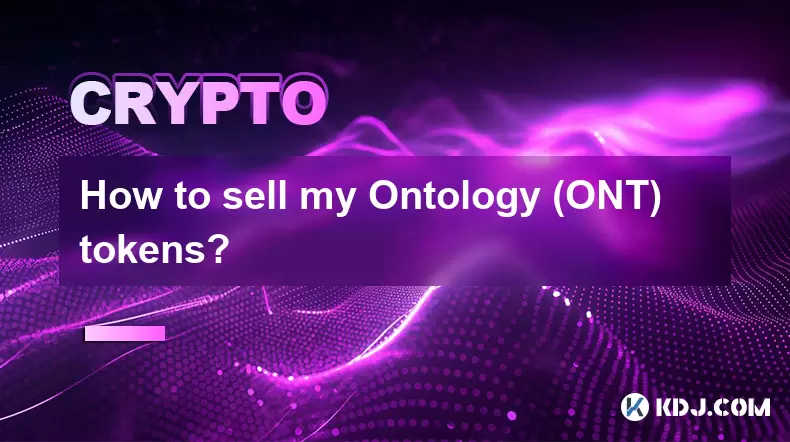
How to sell my Ontology (ONT) tokens?
Aug 09,2025 at 06:08pm
Understanding Ontology (ONT) and Its Trading EcosystemBefore selling your Ontology (ONT) tokens, it's essential to understand the nature of the crypto...

How to purchase Aragon (ANT)?
Aug 09,2025 at 11:56pm
Understanding Aragon (ANT) and Its PurposeAragon (ANT) is a decentralized governance token that powers the Aragon Network, a platform built on the Eth...

Where can I buy UMA (UMA)?
Aug 07,2025 at 06:42pm
Understanding UMA and Its Role in Decentralized FinanceUMA (Universal Market Access) is an Ethereum-based decentralized finance (DeFi) protocol design...

How to buy Storj (STORJ) tokens?
Aug 09,2025 at 07:28am
Understanding Storj (STORJ) and Its Role in Decentralized StorageStorj is a decentralized cloud storage platform that leverages blockchain technology ...

What is the best app to buy Nano (NANO)?
Aug 09,2025 at 03:35am
Understanding Nano (NANO) and Its Unique FeaturesNano is a feeless, instant cryptocurrency designed for fast peer-to-peer transactions. Unlike many ot...

Where can I purchase Siacoin (SC)?
Aug 08,2025 at 11:14am
Understanding Siacoin (SC) and Its Role in the Sia NetworkSiacoin (SC) is the native cryptocurrency of the Sia decentralized cloud storage platform, a...

How to sell my Ontology (ONT) tokens?
Aug 09,2025 at 06:08pm
Understanding Ontology (ONT) and Its Trading EcosystemBefore selling your Ontology (ONT) tokens, it's essential to understand the nature of the crypto...
See all articles





















